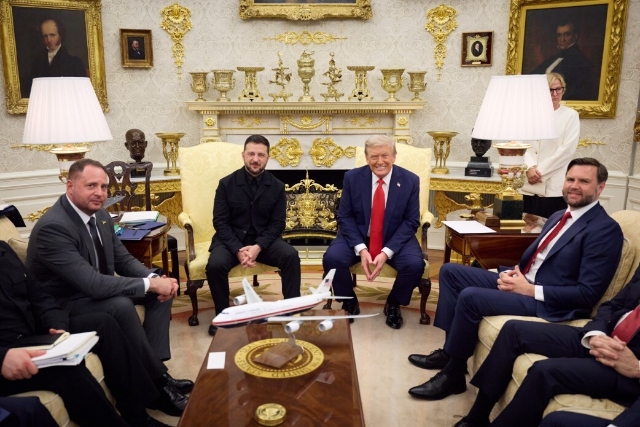
Ukrainian President Zelenskyy meets with US President Trump in Washington D.C., United States, August 19, 2025.
On August 18, US President Trump met with Ukrainian President Volodymyr Zelenskyy at the White House, followed by multilateral talks with several European leaders. After the talks, Trump called Russian President Vladimir Putin for a lengthy conversation.
Trump announced that he would arrange a bilateral meeting between Russian President Vladimir Putin and Ukrainian President Volodymyr Zelenskyy at a location to be determined. He also announced that a trilateral summit between the US, Russia, and Ukraine would follow. He pledged cooperation with both Russia and Ukraine and promised substantial security assistance to Ukraine.
Zelenskyy held a press conference after the White House meeting, calling it the "most successful US-Ukraine meeting" to date.
Zelenskyy expressed his willingness to meet with Putin.
He clearly stated that Ukraine needed "all security-related guarantees," including troops, weapons, training, and intelligence.
He emphasized that only with the commitment of the United States and other major powers could Russia be compelled to move toward peace.
Despite some differences, the leaders expressed a desire to end the Russia-Ukraine conflict. European leaders are concerned about achieving a ceasefire.
Zhang Hong, a researcher on Russian studies at the Chinese Academy of Social Sciences, stated that the successive holding of the Trump-Putin meeting and the US-EU-Ukraine meeting demonstrates that the Russia-Ukraine peace talks have entered a stage of multi-party engagement, noting, "it's now a protracted process."
Zhang viewed Ukraine as the weakest party in the US-EU summit. "His strategy was to play the 'European card,' partnering with Europe to lobby, influence, or persuade Trump to promote security solutions for Ukraine and Europe, rather than working with Russia to jointly advance Russia's own security and peace solutions."
The expert believes that Zelenskyy's goals and stance on the territorial issue have limited room for maneuver, and he may even reject Trump's peace proposals, as well as those promoted by Putin and Trump.
"The US, EU, and Ukraine are closer in values and security issues, so even if Trump has some differing ideas, he will not abandon Ukraine and Europe," Zhang added.
Reporter: Xie Hongzhou, Wu Wenhui (intern)
Photo: CFP
Editor: Yuan Zixiang, James Campion, Shen He
















